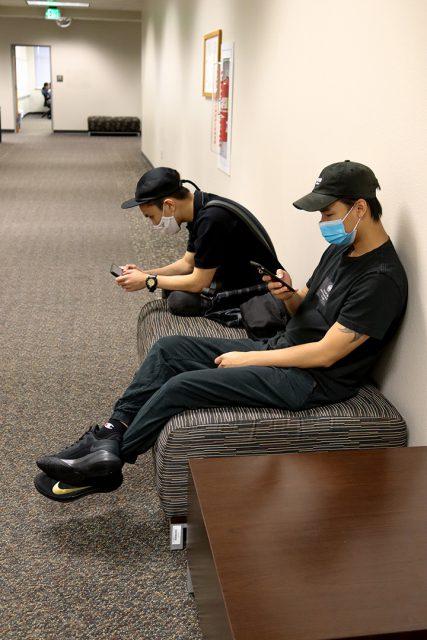Austin Folkertsma
campus editor
For over a year, people have transitioned from working in offices to working from the comfort of their homes. Now, they don’t want to go back.
A lot of factors go into why people prefer working in the office versus working at home and vice-versa.
First is the aspect of productivity. According to Flydesk, an application for remote team management, 59.4% of workers love that they don’t have to commute to and from work so they could be more productive. The average at-home employee clocked in 8.2 hours of work — seven of those being hours of productivity. The average in-office employee clocks in 8.29 hours — with 6.52 of those hours being productive. At home, employees don’t have their boss there to constantly check on them about due dates.
Working from home, one could develop their own routine, but to me, it is easier to develop a routine if I am in the office. For example, my weekly schedule is, on Fridays, we have a staff meeting at The Collegian and finish some edits. I brainstorm some ideas of people to interview, and then I set a few days aside to interview said people. From there, I pick out whose information was more viable and type up their responses.
According to Flydesk, the mental aspect of it is that 61.5% of at-home employees feel valued by their workplace compared to 51.4% of in-office employees. Being in an enclosed area by myself messed with my mental state. When I am at home, juggling work and leisure time is hard. I found there are more distractions. Maybe I get an Instagram notification, or some new show on Netflix comes out and it alerts my phone. When in the office, the focus is there.
According to Flydesk, the social aspect of it is that 25.4% of at-home employees feel a disconnect between themselves and their workplace, whereas 19.1% of in-office employees feel a disconnect between themselves and their workplace. Opportunities to get to know your boss and grow within your business in the workplace are almost nonexistent. The reality is when in the office, employees tend to be more active — both physically and socially.
If you are like me, an extrovert, you want to be around people. Office shenanigans are fun. Office parties are fun. The stereotypical conversations by the water dispenser are fun. When you work from home, employees have everything they need within an arm’s length, but when you are in the office, you have to physically get up and go to the department that you are trying to reach and be like, “Hey, can you print this off for me?”
Out of everything that has been mentioned, the mental, physical and the social side of a job, I think what ties it all together is if you ask yourself — “Do I really like my job?”
If one goes into the office hating their job, their mind is going to be the same. On the other hand, if one goes into their job loving it and having a positive mindset, they will have a positive attitude.































